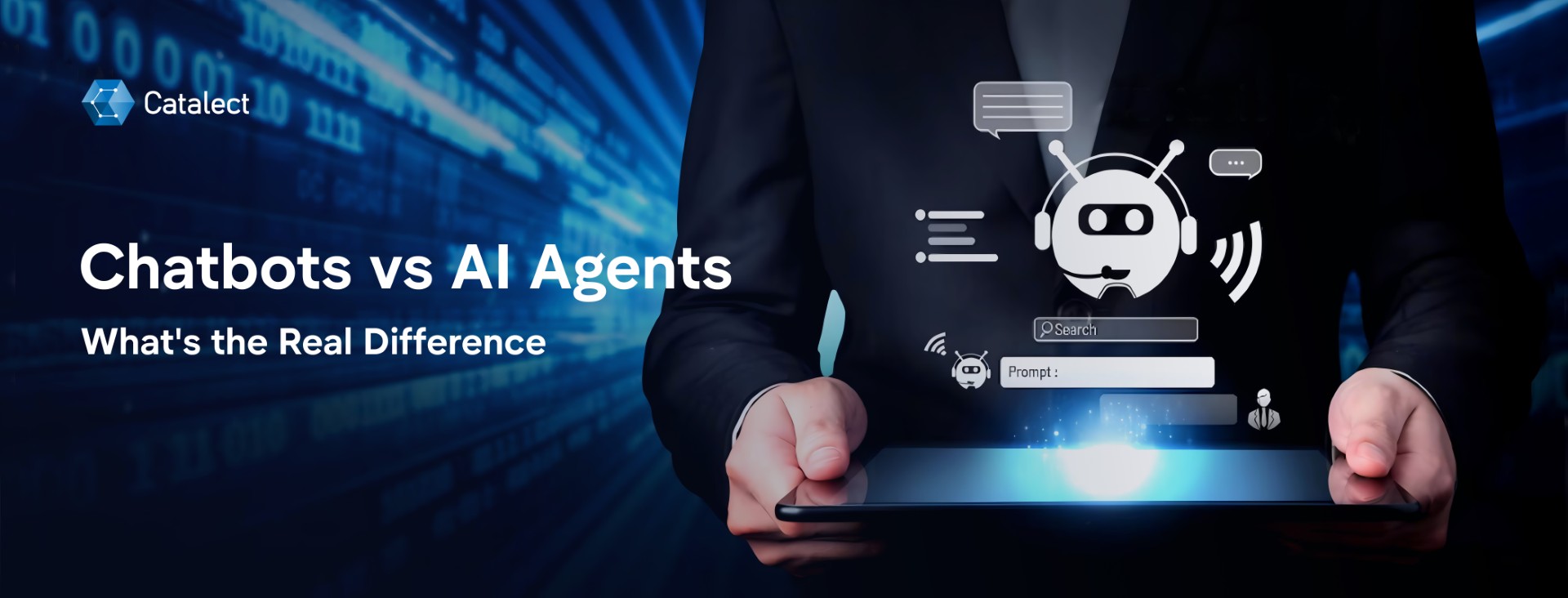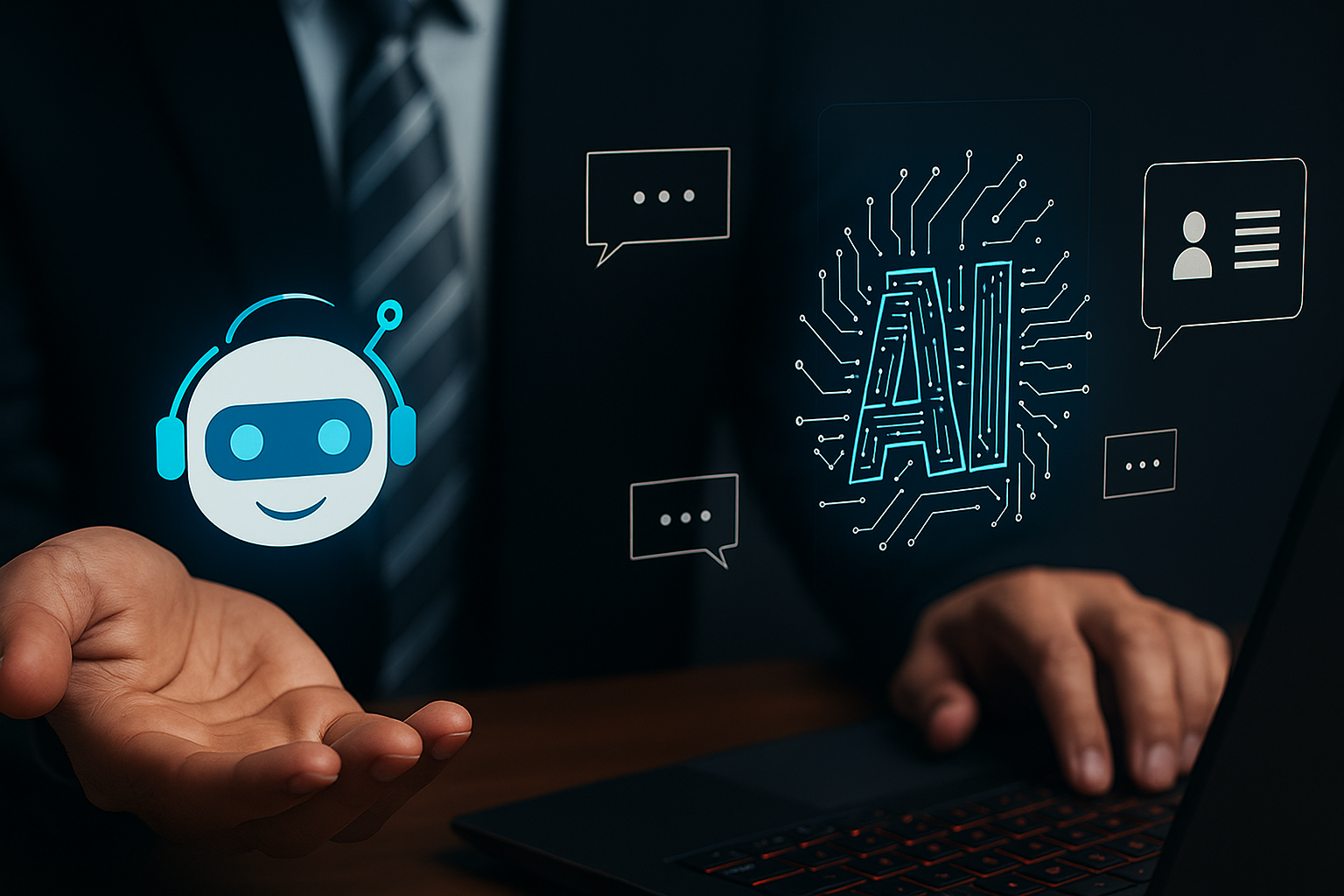
As artificial intelligence becomes increasingly connected to our daily lives, understanding the difference between chatbots and AI agents is becoming more important than ever. According to McKinsey, by mid-2023, around 55% of companies had adopted AI in at least one business function. Meanwhile, individuals are also embracing AI in their personal routines, from organizing their calendars to managing their finances.
On one hand, we have chatbots, which trace their roots back to early systems like ELIZA and A.L.I.C.E. These are primarily conversational tools responsible and designed to assist in real time. On the other hand, there are AI agents built on more sophisticated architectures like deep learning and reinforcement learning. These agents go beyond simple responses: they reason, plan and even act on their own. For instance, an autonomous agent can manage a supply chain by forecasting demand, adjusting orders, and coordinating logistics, without needing a human to step in.
A chatbot is a software application that uses artificial intelligence, specifically natural language processing (NLP), to carry out human-like conversations. These chatbots can understand and respond to text or voice inputs, helping users complete a variety of tasks such as booking appointments, answering FAQs, or guiding them through troubleshooting.
Chatbots are widely used to automate customer service and streamline repetitive processes. They offer a cost-effective solution that works around the clock, handling large volumes of requests without fatigue. Let’s look at a few areas where chatbots are making a significant impact:
Companies like Amazon have integrated AI-powered chatbots into their service ecosystems. With tools like Amazon Lex paired with Amazon Connect, chatbots can interpret user intent, answer questions, check order statuses, and even reset passwords all through natural text or voice. This kind of customer service automation reduces wait times and allows human agents to focus on more complex issues.
In retail, chatbots help customers navigate product catalogues, confirm whether an item like “blue sneakers in size 10” is in stock, and highlight upcoming promotions. Some even retrieve price history to help shoppers make informed decisions before buying.
Some chatbots are designed to be more than just helpers; they’re companions. Anthropic’s Claude, for example, is often used for emotional support in addition to practical tasks. Users report feeling more positive after chatting, especially during life transitions like job changes or personal stressors.
An AI agent takes artificial intelligence a step further. Unlike chatbots, AI agents are built to make decisions and take initiative with little or no human involvement. These systems rely on deep learning, reinforcement learning, and adaptive algorithms to understand context, learn from experience, and evolve over time.
AI agents are capable of managing complex, multi-step tasks from coordinating logistics to analyzing data trends. Their ability to reason and act autonomously makes them ideal for tackling open-ended and dynamic problems.
AI agents are built for scenarios that require real-time decision-making, learning, and independent action. They shine in areas where complexity and scale make manual intervention impractical.
Tools like Reclaim.ai handle the headache of scheduling by automatically finding ideal meeting times, resolving conflicts, and sending invitations. They consider your preferred work hours, priorities, and availability, removing the need for back-and-forth emails.
Unlike chatbots that assist shoppers, AI agents can act on your behalf. For instance, Amazon launched an AI agent on March 31, 2025, that can browse the web, compare prices of products, update billing information, and complete purchases, all based on your previous shopping habits. Imagine your protein powder running low, and the AI automatically reorders it before you even realize it. This kind of LLM-powered conversational AI agent represents the next evolution in online shopping.
AI agents are also transforming how we work. Microsoft’s Copilot, integrated into tools like Outlook and Teams, can summarize long email threads, draft replies, route support tickets, and approve routine workflows. This enables employees to focus more on high-impact, strategic tasks rather than administrative ones.

While both chatbots and AI agents use natural language and artificial intelligence, they differ in functionality, autonomy, and complexity. And though chatbots are becoming more capable and agents more conversational, their core purposes remain distinct.
Chatbots typically follow set rules or scripts, offering reactive responses. AI agents, on the other hand, manage longer, multi-turn conversations, track evolving context, and proactively trigger actions, sometimes even without user input.
Chatbots help answer questions or guide users through processes but require user prompts at every step. In contrast, AI agents can carry out entire workflows, like booking a meeting or sending a follow-up email, without needing continuous direction.
Chatbots generally follow static logic flows and must be manually updated to improve. AI agents can learn from interactions, remember preferences, adapt their behaviour, and improve through real-time data tracking.
Chatbots are often confined to specific use cases or knowledge bases. AI agents, however, can connect to live APIs, internal systems, and external databases, enabling richer, more informed responses and broader actions across platforms.
Choosing the right AI solution comes down to understanding your objectives, budget, and operational needs. While AI agents are powerful, they aren’t always necessary. Here's how to evaluate what fits best:
Need to answer routine questions, guide users through simple steps, or handle FAQs? A chatbot is likely all you need. But if you're aiming to automate complex tasks, like cross-system scheduling, report analysis, or transactional workflows, then an AI agent is the smarter choice.
Chatbots are typically faster and cheaper to set up, especially if they’re rule-based or built from templates. AI agents, however, demand a larger upfront investment, including integrations with internal systems, access to APIs, and sometimes custom AI models.
If your business requires strict control over messaging and outcomes, a chatbot provides the consistency you need. But if you’re ready to embrace systems that think and act for themselves with proper oversight, an autonomous agent can unlock greater efficiency and innovation.
Chatbots scale quickly and cost-effectively, making them ideal for handling high-volume customer service. AI agents offer a deeper level of value; they can automate end-to-end processes. Platforms like Salesforce now track AI agent performance by tasks, allowing businesses to directly measure the return on automation.
The distinction between chatbots and AI agents lies in depth. Chatbots are built to answer, while AI agents are built to understand. As customer expectations grow and workflows become more complex, businesses need solutions that go beyond simple responses. They need solutions that can adapt and act with intent. That’s where Catalect’s AI Agent comes in, bridging the gap between automation and intelligence. It’s not about replacing chatbots; it’s about taking a step forward. If you’re curious to see how it can elevate your customer support, book a demo now.


